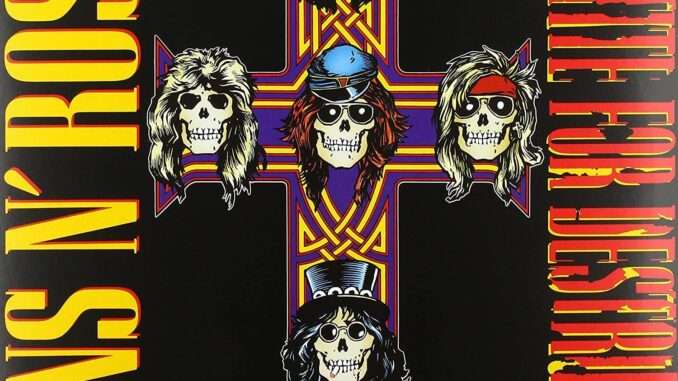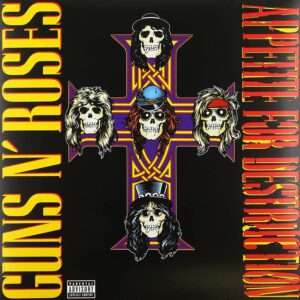
From Grit to Glory: How Guns N’ Roses Shaped Rock from ‘Appetite’ to Stadium Kings
When *Appetite for Destruction* dropped in 1987, it wasn’t just another rock record—it was a Molotov cocktail thrown into the polished hair-metal scene of Los Angeles. With raw vocals, blistering guitar riffs, and unfiltered lyrics, Guns N’ Roses came out swinging. They weren’t interested in following trends. Instead, they kicked down the doors of the mainstream with an album that dripped with danger, rebellion, and authenticity.

Led by the unpredictable charisma of Axl Rose and the iconic guitar work of Slash, *Appetite for Destruction* was gritty, aggressive, and brutally honest. Songs like “Welcome to the Jungle,” “Paradise City,” and “Sweet Child O’ Mine” weren’t just hits—they were anthems for a generation disillusioned by excess but still hungry for energy and emotion. The band wasn’t clean-cut, and that was the point. They embodied the chaos of rock ‘n’ roll in its purest form.
But as the band’s fame exploded, so did their sound. Their follow-up project wasn’t just a sequel—it was a transformation. With the release of the *Use Your Illusion I & II* albums in 1991, Guns N’ Roses shifted gears. They evolved from streetwise misfits to arena-filling icons. The gritty garage rock sound gave way to a more ambitious, layered approach. Strings, pianos, and epic song structures found their place alongside the heavy guitar riffs and primal screams.
Tracks like “November Rain” and “Estranged” showcased a band expanding its emotional and musical range. Axl Rose’s theatrical vision took center stage, pushing the boundaries of what hard rock could be. The result? A dual album that was both grandiose and groundbreaking, cementing their place as one of the biggest bands in the world.
Of course, with greater ambition came internal conflict. The very edge that made Guns N’ Roses electric also made them volatile. Tensions, departures, and long silences followed, but their legacy had already been written. They went from club gigs on the Sunset Strip to selling out stadiums worldwide—not by selling out, but by evolving.
Guns N’ Roses didn’t just survive the era—they defined it. From gritty rebellion to arena rock royalty, they proved that real rock ‘n’ roll isn’t just about volume—it’s about evolution, emotion, and unapologetic identity.
Leave a Reply